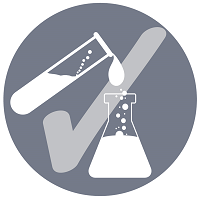Back
Formulation and Delivery – Biomolecular
Session: Symposium: Recent Development in Prophylactic Therapies and Vaccines (BM)
Thermal Stabilization of Biopharmaceuticals Using Ensilication
Monday, October 17, 2022
10:00 AM – 10:30 AM ET
Location: 204 AB

Asel Sartbaeva, PhD(Cantab)
Associate Professor in Chemistry
University of Bath, United Kingdom
Speaker(s)
Biomolecules used both in research and medicine are some of the most important products produced today. These include vaccines, antibodies used in therapy and diagnostics, proteins, enzymes, and many more. Biomolecules suffer from a significant drawback of needing to be kept refrigerated or frozen during all stages of their production, transport, and storage. To enable this there is a global network known as the cold-chain, however this system is beset with issues. It is extremely expensive to operate and expand, is vastly complicated, and prone to regular failures. This is highlighted most in the transportation of vaccines in low and middle income countries (LMICs). In these areas, approximately 1.5 million children under five are dying from vaccine preventable diseases every year, predominantly because they are not vaccinated in time. An increasing proportion of the 20 million children who do not receive basic vaccines live in remote rural areas, where access and infrastructure are major challenges. To make matters worse, these vaccination programmes are cold-chain processes that can account for up to 80% of the costs. Despite the enormous cost of the cold-chain, vaccine wastage rates can reach up to 80%, according to WHO, further complicating the task of getting vaccines to these remote areas.
Ensilication keeps a wide range of biomolecules stable without refrigerators, negating the need for cold-chain transport and storage. Our award-winning and patented chemical method of ensilication creates protective layers around individual biomolecule targets, preventing breakdown and degradation. Ensilication is simple, cost-efficient and can be applied post-production to many existing manufacturing processes, creating products that do not rely on cold-chain for transport and storage. This ground-breaking innovation in biopharmaceutical and bio-diagnostic development will increase global access to these medical necessities, particularly in low- and middle-income countries, avoiding unnecessary wastage and presenting significant cost savings to national economies.
Once a biomolecule has been ensilicated, it can be stored and transported around the globe without the need for fridges or freezers. Ensilication will also improve the shelf life of products, making it easier for countries to stockpile products for sudden disease outbreaks and humanitarian situations.
Ensilication keeps a wide range of biomolecules stable without refrigerators, negating the need for cold-chain transport and storage. Our award-winning and patented chemical method of ensilication creates protective layers around individual biomolecule targets, preventing breakdown and degradation. Ensilication is simple, cost-efficient and can be applied post-production to many existing manufacturing processes, creating products that do not rely on cold-chain for transport and storage. This ground-breaking innovation in biopharmaceutical and bio-diagnostic development will increase global access to these medical necessities, particularly in low- and middle-income countries, avoiding unnecessary wastage and presenting significant cost savings to national economies.
Once a biomolecule has been ensilicated, it can be stored and transported around the globe without the need for fridges or freezers. Ensilication will also improve the shelf life of products, making it easier for countries to stockpile products for sudden disease outbreaks and humanitarian situations.
Learning Objectives:
- Upon completion of the talk, participants will be able to understand silica sol-gel chemistry
- Upon completion of the talk, participants will be able to understand the process of ensilication
- Upon completion of the talk, participants will understand the vaccine cold chain requrements
- Upon completion of the talk, participants will learn about challenges of vaccine transport and storage
- Upon completion of the talk, participants will be able to understand the use of ensilication for the thermal stabilisation of biologicals

